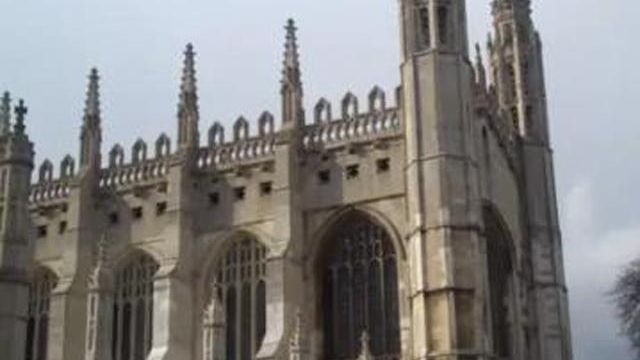Musical masterpiece interprets crucifixion
It's been sixteen hours since the last note of James McMillan's masterpiece was played yet the reverberations of the music are still felt. Not only the powerful score performed by the BBC Symphony Orchestra, but also the mental and emotional images brought forth by the music, the passionate lyrics and the setting of the ancient Chapel at King's College. To say the performance was brilliant is an understatement of great magnitude.
Posted — UpdatedIt's been sixteen hours since the last note of James McMillan's masterpiece was played yet the reverberations of the music are still felt. Not only the powerful score performed by the BBC Symphony Orchestra, but also the mental and emotional images brought forth by the music, the passionate lyrics and the setting of the ancient chapel at King's College. To say the performance was brilliant is an understatement of great magnitude.
The 48-year-old McMillan was there to watch and listen to this interpretation of his work. An interpretation experienced by 700 people packed into the Chapel and a worldwide audience listening live on the BBC. Written in 2008, Good Friday's performance of the ten-movement piece was the first ever inside a church. McMillan told me later, "The setting changed the way I heard the work. That was unexpected."
Some 80 musicians and a chorale of 130 voices (two of the voices Duke Divinity School students, a third the voice teacher at DDS) were led exquisitely by KC Choirmaster Stephen Cleobury.
The soft-spoken McMillan told me, "When I wrote this," he said, "I had no idea where it could go. ... I just knew it had to be written."
James McMillan is a lifelong Roman Catholic who was trained in music in Edinburgh and earned a doctorate in composition at Durham (England) University. He has composed numerous pieces and has performed internationally for the BBC for several years.
This work is not the traditional interpretation of any gospel narrative of the crucifixion of Christ. "This is about death, a murder, a heinous taking of life in a way none of us can begin to imagine," McMillan explained. The Glasgow native continued, "The music had to feel disjointed at times."
He added, "My God, can you imagine watching, participating by just watching and doing nothing to stop this crime?"
The two-hour masterpiece may be ahead of its time for some. For me, the piece was thought provoking and deeply emotional. There are times strings and trumpets are yelling for me to pay attention to what is happening to Jesus. Other times, the deep voice of the chorale are yelling, literally yelling for this innocent man's scalp! Still others, the chorale is soft while the strings are tapping their instruments with the hard side of the bow ... tapping ... perhaps reminding us of nails being driven.
Shocking? Perhaps for some. Not for me. I was sitting on the front row, directly in front of the cellists.
Jeremy Begbie, DDS professor of theology and the arts, said to me afterwards, "Did you feel those forces of hell rushing toward you?" "How could you not!" I answered.
I was neither shocked or disjointed by the evening. Instead, reminded in a way I had never experienced what this week is truly remembering. Today's sunshine has brought many people to the streets of Cambridge. There is laughter and frivolity, shoppers, lovers, children all enjoying the English spring. I, too, will laugh, enjoy the sun on my face and smell the fragrance of the flowers and the history. Along the way, I also pray I not forget why I am here and what we cherish. I sincerely thank James McMillan for prompting me to think, and remember, in a new and more profound way.
McMillan's "St. John Passion" is the climatic ending of the first joint venture between Duke Divinity School and King's College for Holy Weeks music and lectures yet it doesn't appear to be the last. At a private reception following the performance, DDS Dean Dr. Gregory Jones said, "We have just begun to see what can be brought forth when theology and arts are combined. This dream, not a fantasy, this dream has been realized this week, and much more can be done."
Dr. Cleobury echoed, "We are privileged to have been a part of this magnificent venture and look forward to working with Duke University again."
The efforts of the week were funded through the support of the Mary Duke Biddle Foundation.
Related Topics
Copyright 2024 by Capitol Broadcasting Company. All rights reserved. This material may not be published, broadcast, rewritten or redistributed.





